Congregational Development
The College for Congregational Vitality Cohorts of 2023.
A secret sauce exists to bring others into our community, and it’s inside us already.
At All Saints Warner Robins, it’s in the eyes scanning the parking lot for unfamiliar faces on Sunday morning, to make sure that any newcomers receive a name tag and warm greeting from the get go. At St. Michael and All Angels in Stone Mountain, it’s in the taste of global cuisines and personal stories behind each one.
At St. Joseph’s in McDonough, it’s in the survey that led to a renewed focus on discipleship. At St. Catherine’s in Marietta, it’s listening to everyone about a new Sunday service.
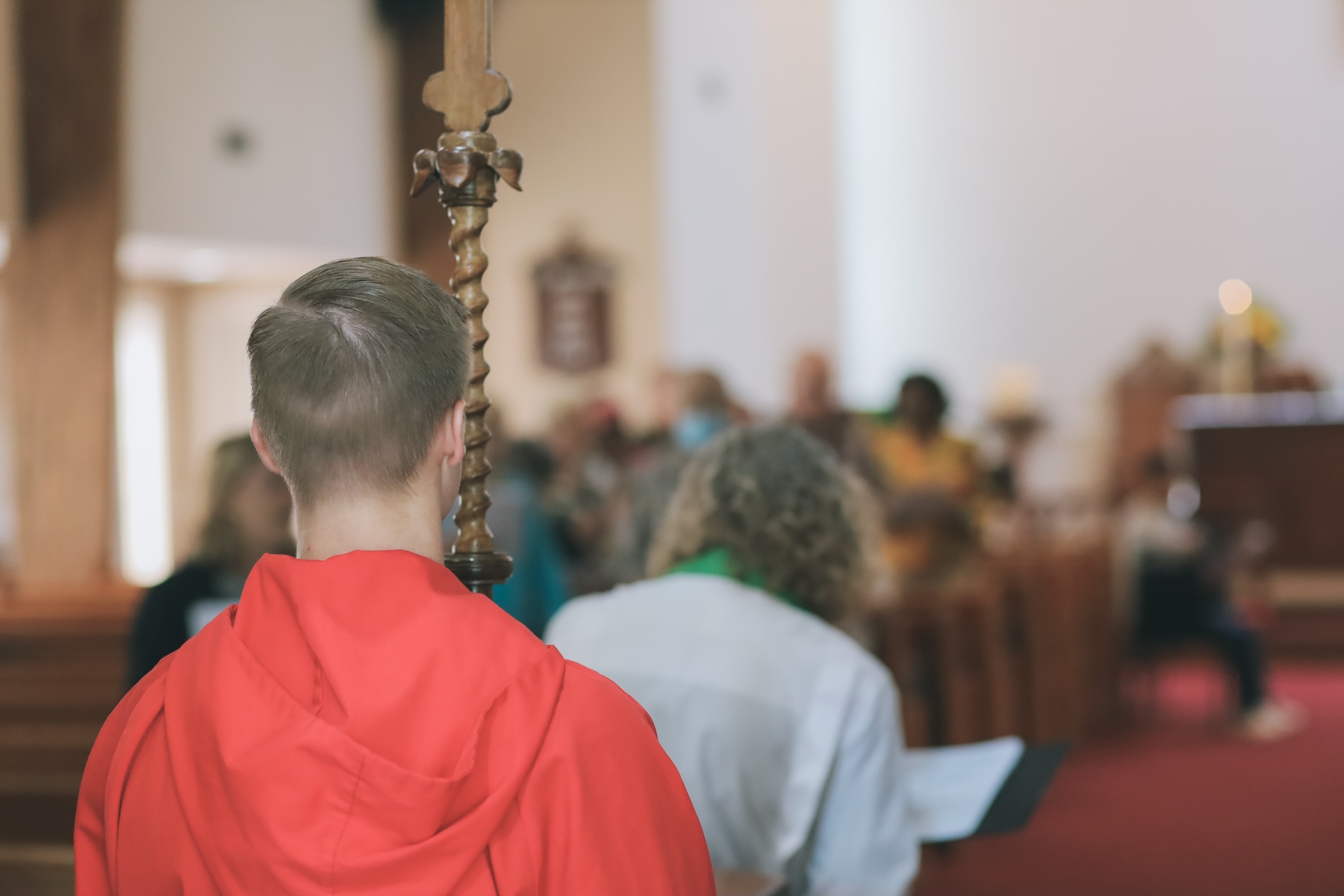
St. Joseph’s Episcopal Church in McDonough, GA.
These efforts aren’t one size fits all, or one and done. Using their lips and lives, Episcopalians are trying new experiments to strengthen and grow their parishes through the College for Congregational Development (CCD), a major new resource for The Episcopal Diocese of Atlanta. Small CCD teams from 17 local congregations so far are learning and borrowing from best practices from organizational development of businesses, presented in the context of Episcopal identity, doctrine, discipline and worship. The teams come up with small, strategic actions to help their parishes thrive.
“We’re really growing in a good positive way,” said Jude Reynolds, a lifelong member of All Saints Warner Robins, where members built on their deep history of hospitality through a new strategy for welcoming worshippers. “I really think we owe a lot of it to the CCD program.”
St. Cat’s rector and CCD co-director Sarah K. Fisher appreciates the creativity that CCD injects, and new measures of congregational success. “The Holy Spirit is alive and having a field day in The Episcopal Church right now—if we’re willing to pay attention when the Spirit nudges and says, ‘Hey, here’s a new idea,’ ” she said.
HISTORICAL OPPORTUNITY
CCD is especially relevant because the national data can seem daunting, even to the diocese’s first CCD graduate, Sally Ulrey, now Canon for Congregational Vitality and Ministry Development. Baptized members nationwide in The Episcopal Church dropped 21 percent from 2013 to 2022. Sunday attendance is down 43 percent in that decade, but it’s up from the pandemic-driven low in 2021.
But attendance does not always mirror a church’s vitality and viability, especially in the Atlanta diocese. It is among the largest and best-resourced dioceses in the country, and its rural parishes are serving as oases for Christians who have been turned away from other denominations. The average national Sunday attendance is 35, but here it is 75. From 2021 to 2022 here, membership decreased 4 percent, but giving increased by 10 percent to $3.2 million, Ulrey reported. “We also have to name the abundance that we have here,” she said.
“We have everything we need to continue and expand our proclamation of the name of Jesus and to welcome people into fellowship,” Bishop Wright told the 2023 Annual Council. “So don’t be consumed by narratives of decline.”
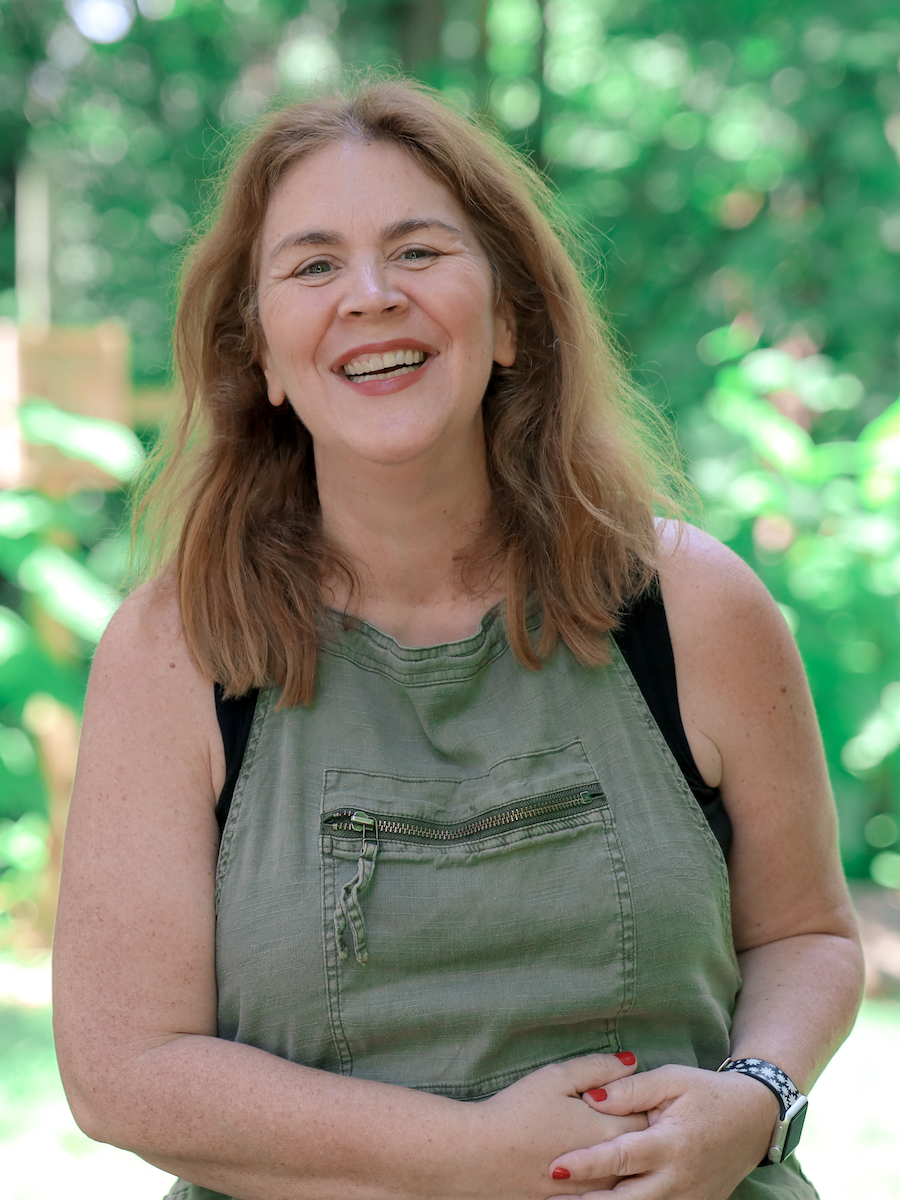
The Rev. Sarah Fisher, CCD Co-director.
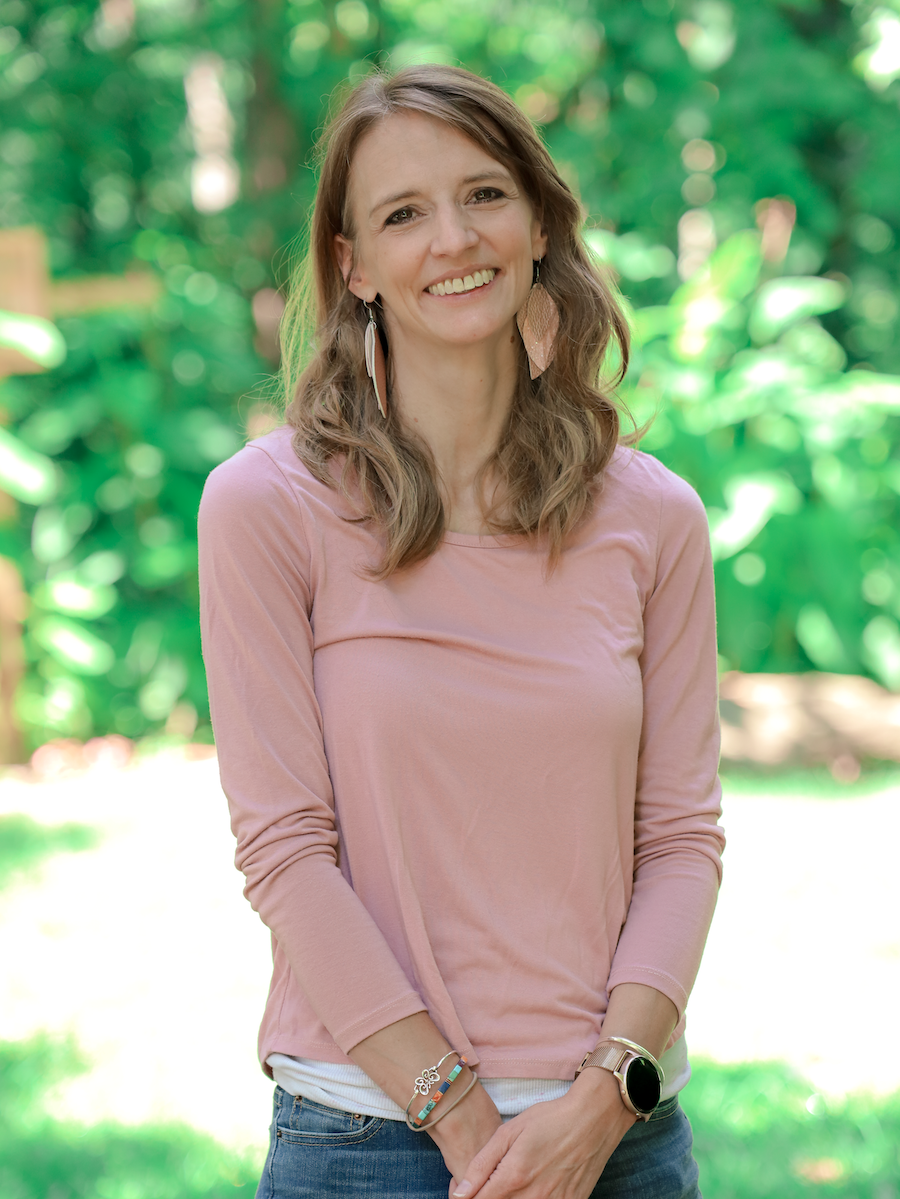
Sally Ulrey, Canon for Congregational Vitality and Development and Co-Director of CCD
CULTURAL TURNING POINT
CCD is helping Atlanta Episcopalians leverage a historical opportunity for authentic connections and grassroots leadership. With CCD training, parish teams can create a more authentic pitch to the rising number of neighbors who consider themselves spiritual but not religious, and respond to the epidemic of loneliness described by the US Surgeon General. CCD leadership fundamentals also are critical for Atlanta Episcopalians because “the church of the future looks like lay leadership supported by clergy,” Ulrey said.
CCD, Wright believes, can help create paths out of “cul-de-sacs of despair” to “broad and hopeful horizons.” The tools of CCD can help reveal within each parish the true passion, authenticity, joy, buoyancy, thoughtfulness, intelligence, brilliance and diligence, so that Episcopalians can demonstrate loving like Jesus with their lips and their lives.
“CCD has given us hope and skills,” Ulrey said. “Because if we can handle this, what can we
not handle? We have a longer runway in The Diocese of Atlanta to prepare for the future, so the opportunity now is to experiment and adapt.”
CLOSER LOOK AT INTERVENTIONS
In Warner Robins, All Saints aims to be a “church without walls,” especially after the pandemic prevented gathering within those familiar walls. The All Saints CCD team learned that if they solved problems with gathering, the congregation could better transform people and prepare them to transform outsiders.
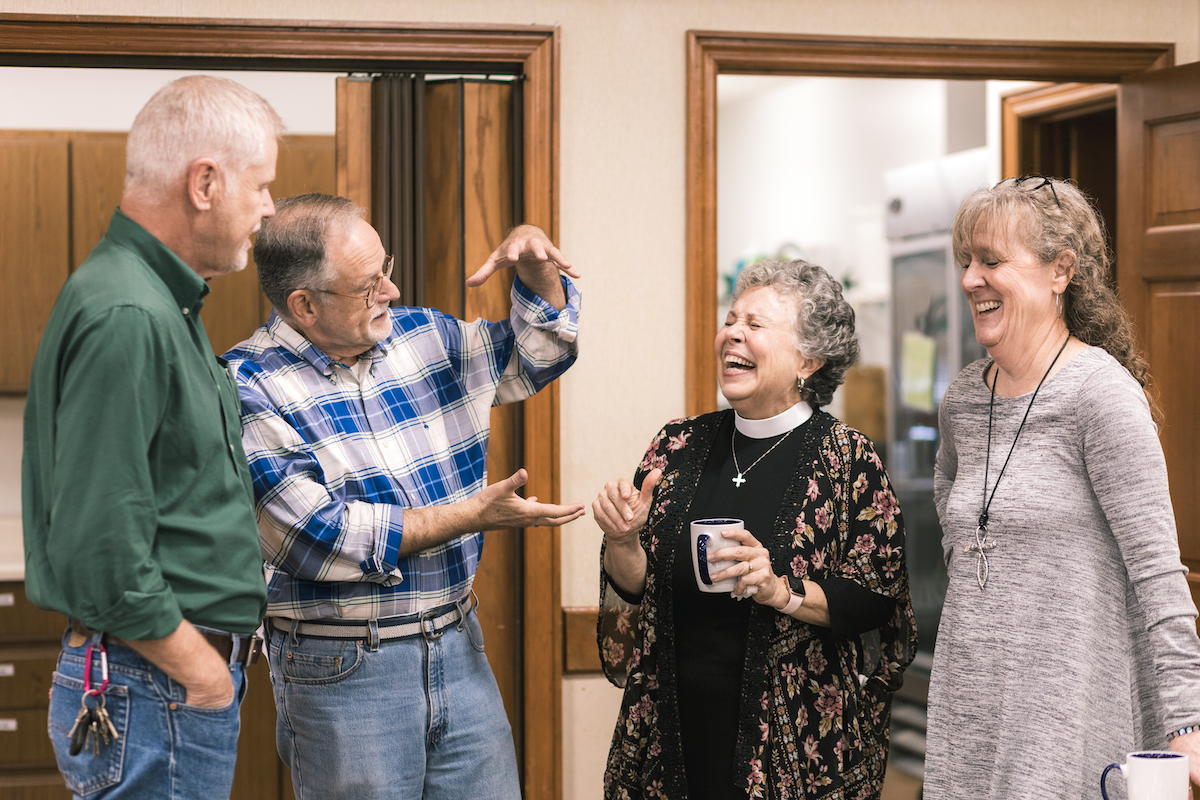
People gather for coffee and conversation after service at All Saints Warner Robins.
Among many ideas implemented, new name tags solved a common awkwardness: longtime parishioners didn’t know one another’s names and felt reluctant to ask. The team also re-energized and increased their corps of greeters.
“It’s gotten to be really funny and fascinating because our ushers and greeters are scanning the parking bays, looking for people as they come in the doors—this whole welcoming thing has evolved from simple name tags,” said rector, The Rev. Bonnie Underwood.
Longtime members will gently offer to assist newcomers in finding the hymns and following the liturgy. A coffee hour with a place for kids to play is a reason for all worshippers to linger after the service, and the mugs have the All Saints logo. At St. Michael and All Angels, parishioners like Lili Phillips appreciate their collective story more because they understand better where they individually came from. Through CCD, Phillips helped transform the annual St. Michael’s Day in March as the congregation threw a festival and potluck celebrating 13 countries represented in the parish with traditional dress and foods, national flags and languages.
“This is knowledge that we give back to St. Michael, for us as a community to know each other more,” said Phillips, who arrived from Iran in 1969. She shared a rice dish made with meat, and a vegetarian version; in 2024, she plans to write parishioners’ names in Persian, and provide maps.
In the meantime, she stays connected through social media with CCD teams from other parishes, to share encouragement and new ideas. These relationships, Ulrey said, are the key to unlocking transformation. “CCD gives people different ways to look at their church,” she said. “It shakes them loose, and more possibilities open up. God is faithful and working, and we’re just changing our lens to notice that activity and join in.”
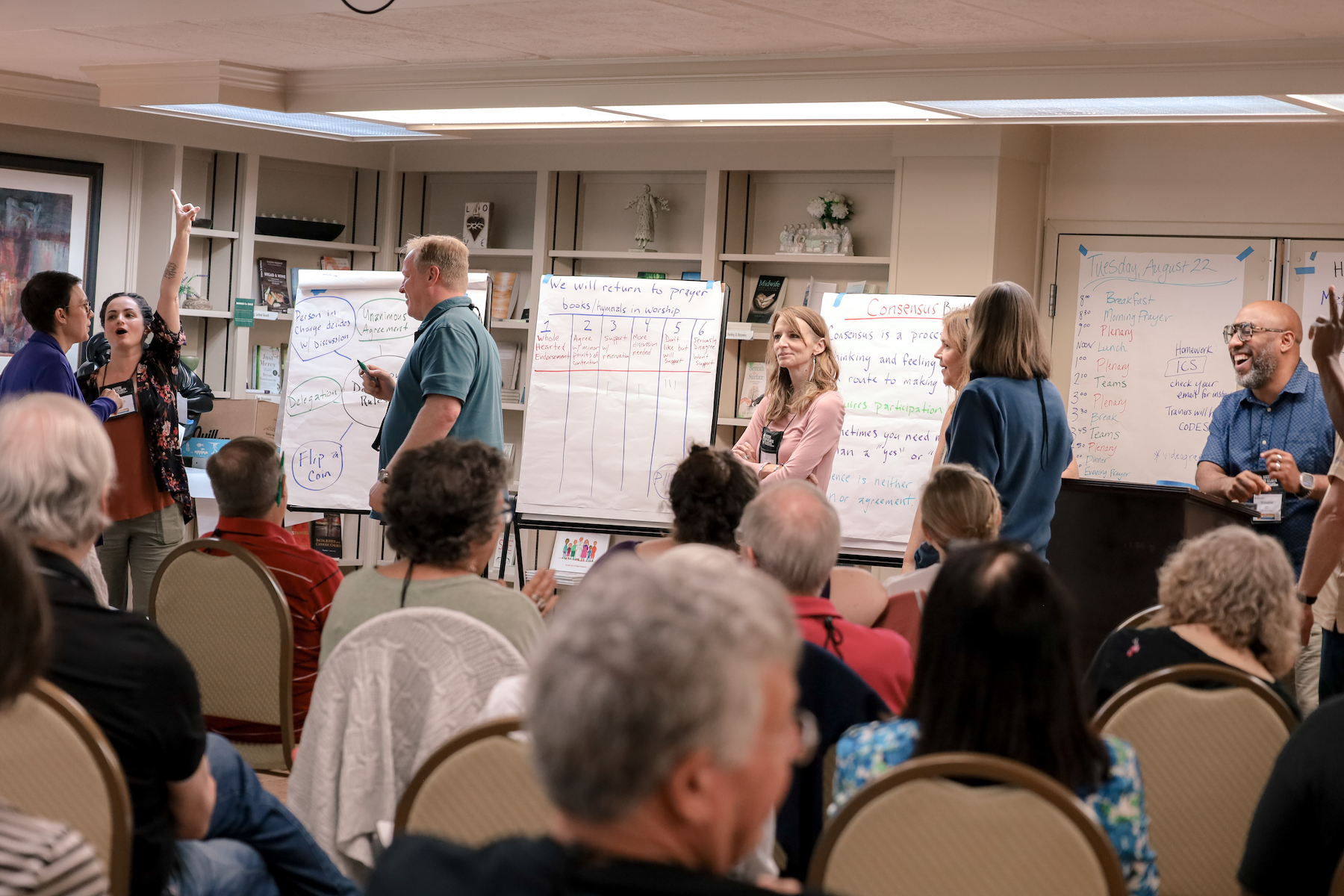
CCD participants identify areas to grow as a congregation.
The team from St. Joseph’s surveyed parishioners about inviting and welcoming people. “CCD has helped us sharpen our focus on our mission: to deepen our relationships with God so we can embody Christ in the world,” said The Rev. Ann Barker. “We have directions we can move in to live more fully into our mission and make disciples both inside the parish and from the community.”
St. Catherine’s listening campaign resulted in a new Sunday service. The team leaned into their congregation’s curiosity and love for community, especially with the recent influx of families with teenagers and young children. “St. Cat’s has so much grace and forgiveness in its DNA that make it a great place to play with CCD experiments,” said The Rev. Sarah K. Fisher, its rector and co-director of the Atlanta CCD. “It’s not about getting it right the first time; it’s about learning what you need so you can move forward.”
HOW IT CAME TO BE
CCD is based on the corporate, nonprofit and Episcopal expertise of former Atlantan and University of Georgia alumna, The Most Rev. Melissa Skelton, former bishop of The Diocese of New Westminster in the Anglican Church of Canada and current Bishop Provisional in the Diocese of Olympia. Skelton worked in branding at Proctor and Gamble and at Tom’s of Maine as vice president for brand and systems development. She also served as General Theological Seminary’s vice president for administration, and as rector of a Seattle parish that tripled in size during her leadership.
In 2009, The Diocese of Olympia (Washington) commissioned Skelton to meld theories, practices and ideas from Scripture, theology and from the theory and of organization development. Today 10 dioceses use CCD, and Skelton helped launch Atlanta’s.
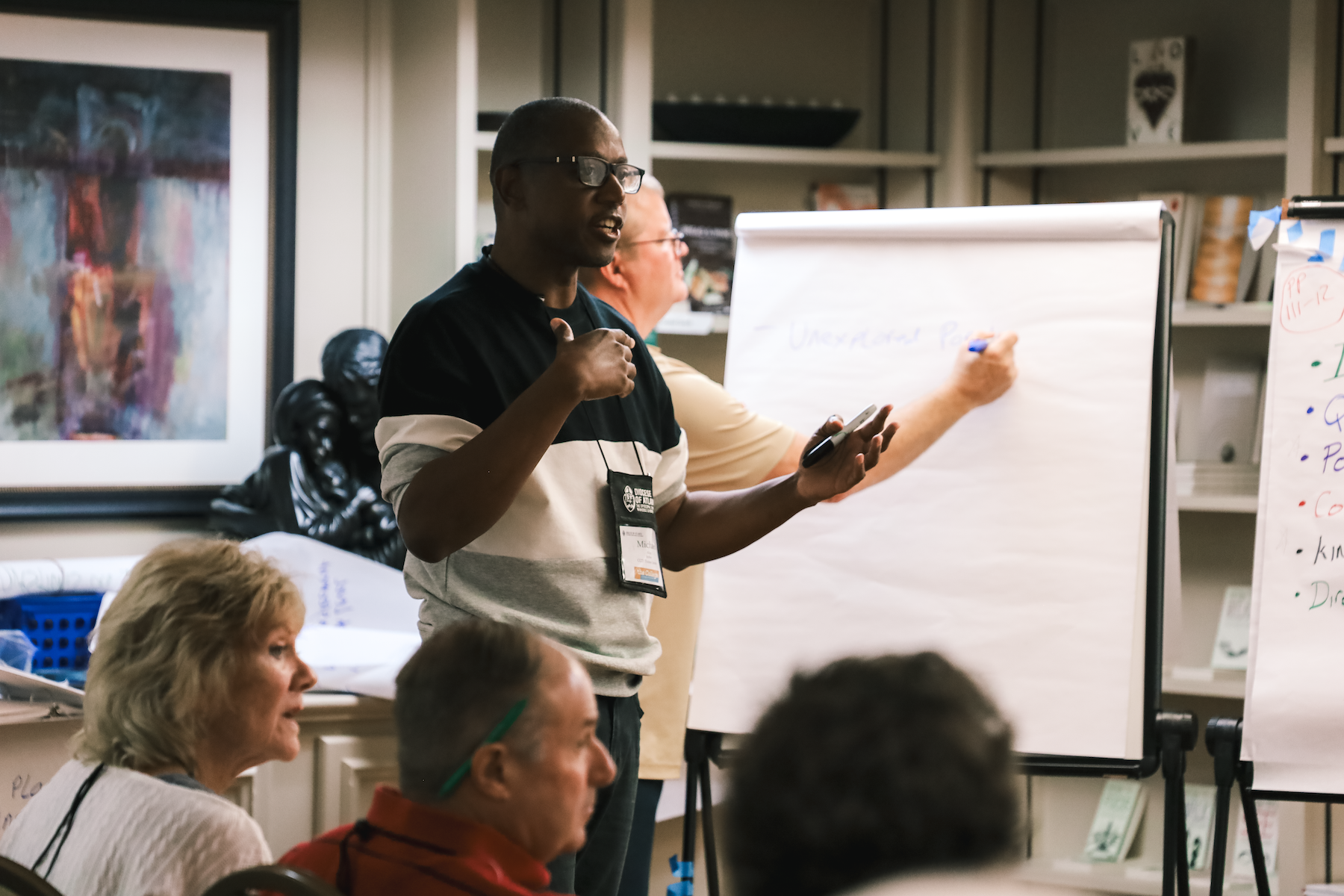
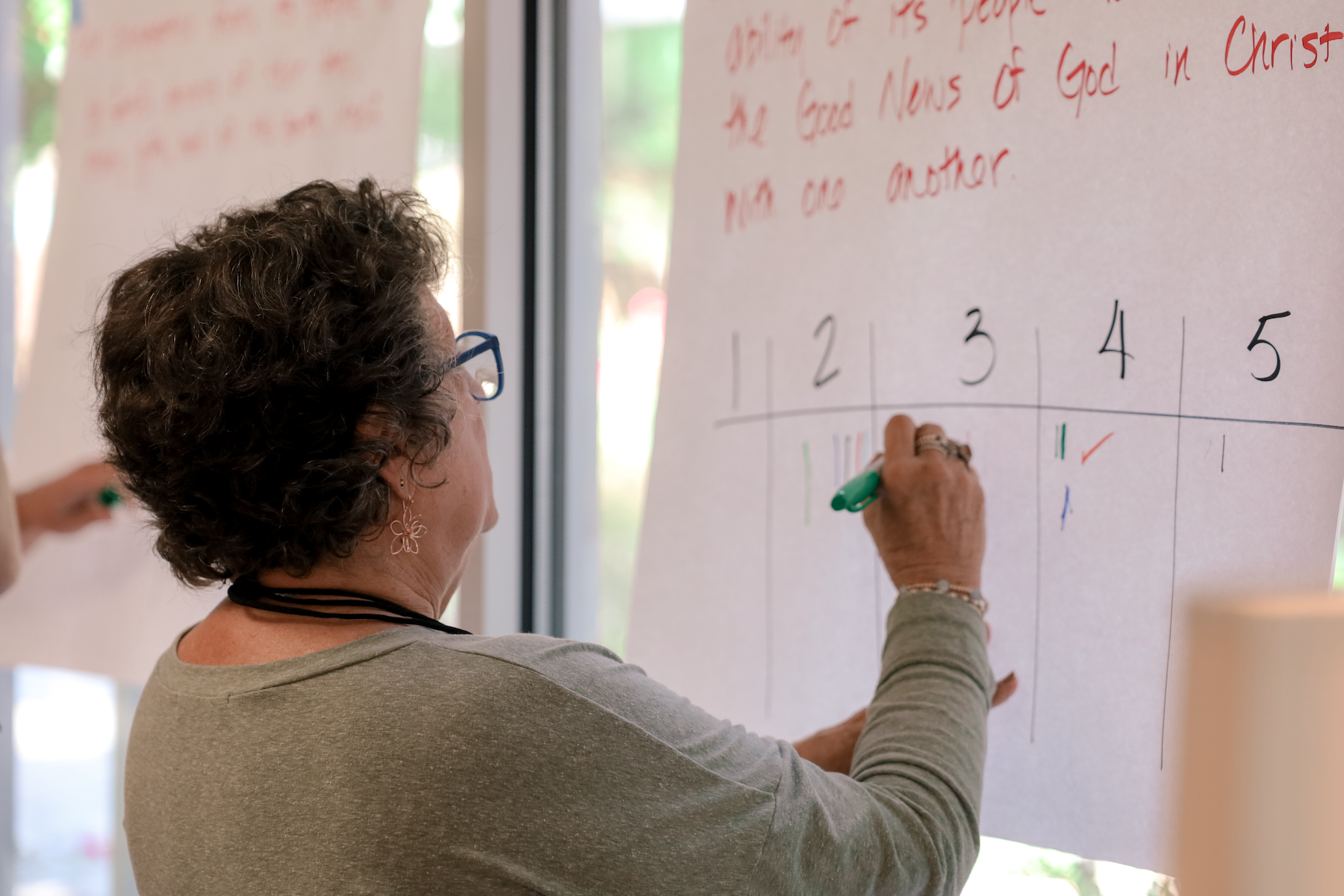
The Episcopal Church was an early adopter of organization development (along with the military and General Mills) to help parishes struggling during the 1970s, especially those in the South.
“Episcopalians believe that we gain insight from our Biblical and ecclesial tradition and through the theory and practices of a variety of disciplines. The College draws on these as it attempts to offer a theologically grounded approach to the practical task of developing congregations,” Skelton said.
C. John Thompson-Quartey lobbied hard to bring CCD to this diocese. “Let’s face it, when corporations are not thriving, they will call someone to turn them around, and that sometimes involves culture and language that is focused on mission,” said Thompson-Quartey, who is now Canon Missioner for Companion Relationships. “Most of our churches don’t know who they are, and don’t have a focused mission. CCD asks, ‘What is the foundation of our faith that makes us attractive to anybody, and how can we be good at that?’”
GETTING READY
CCD can pose hurdles of time and money. Parish teams are 3 to 4 people, including the rector. They commit to two weeklong intensive sessions over two consecutive summers. Because training days are long, participants are expected to stay at the CCD location, which has been Ignatius House Jesuit Retreat Center. Even with a diocesan subsidy, the cost for tuition, materials, room and board in 2023 was $600 per person. CCD also is not for parishes going through sudden trauma or crisis; they can receive assistance from the Canon for Ministry before considering CCD.
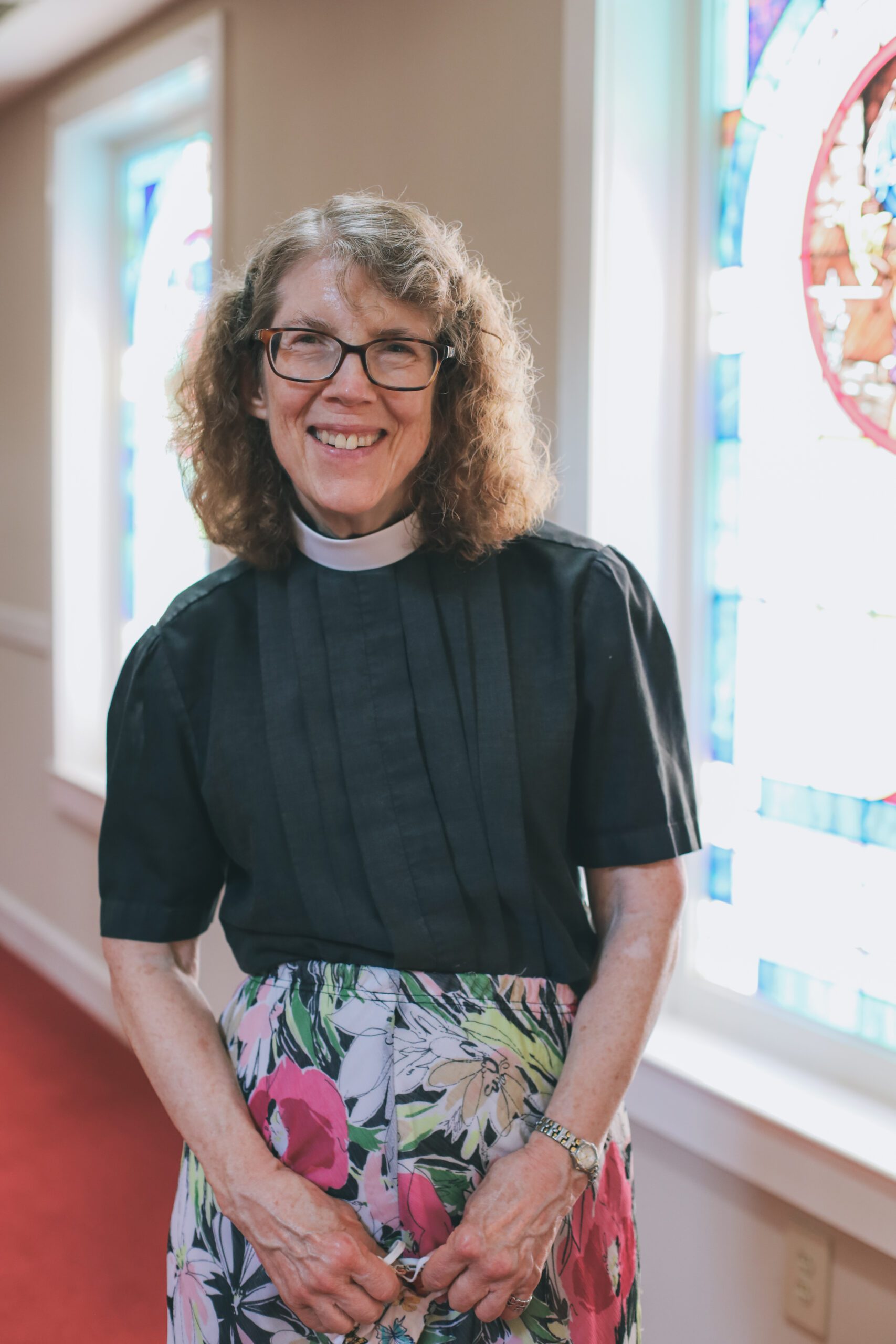
“CCD has helped us sharpen our focus on our mission: to deepen our relationships with God so we can embody Christ in the world”
~ The Rev. Ann Barker
Rector, St. Joseph’s McDonough
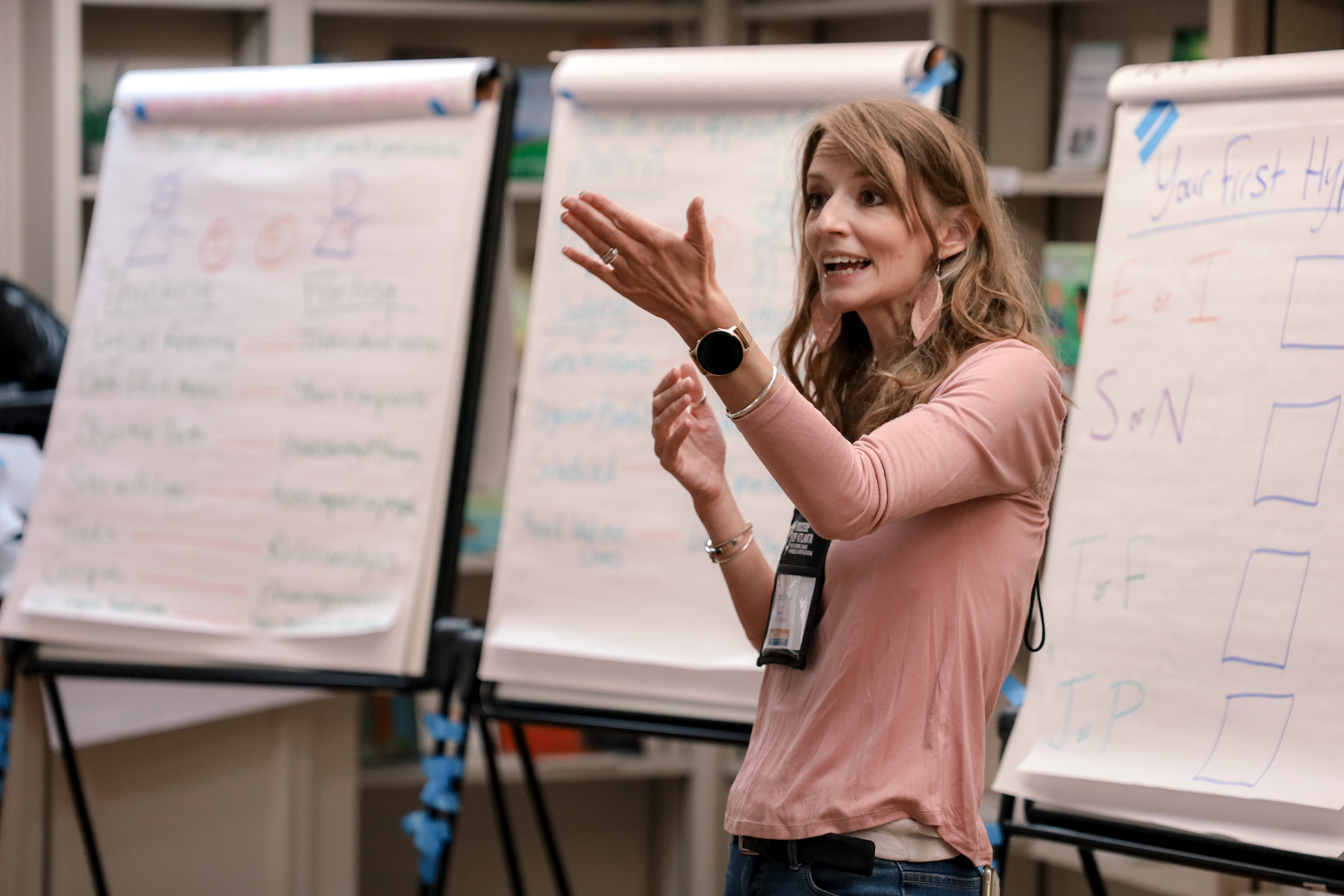
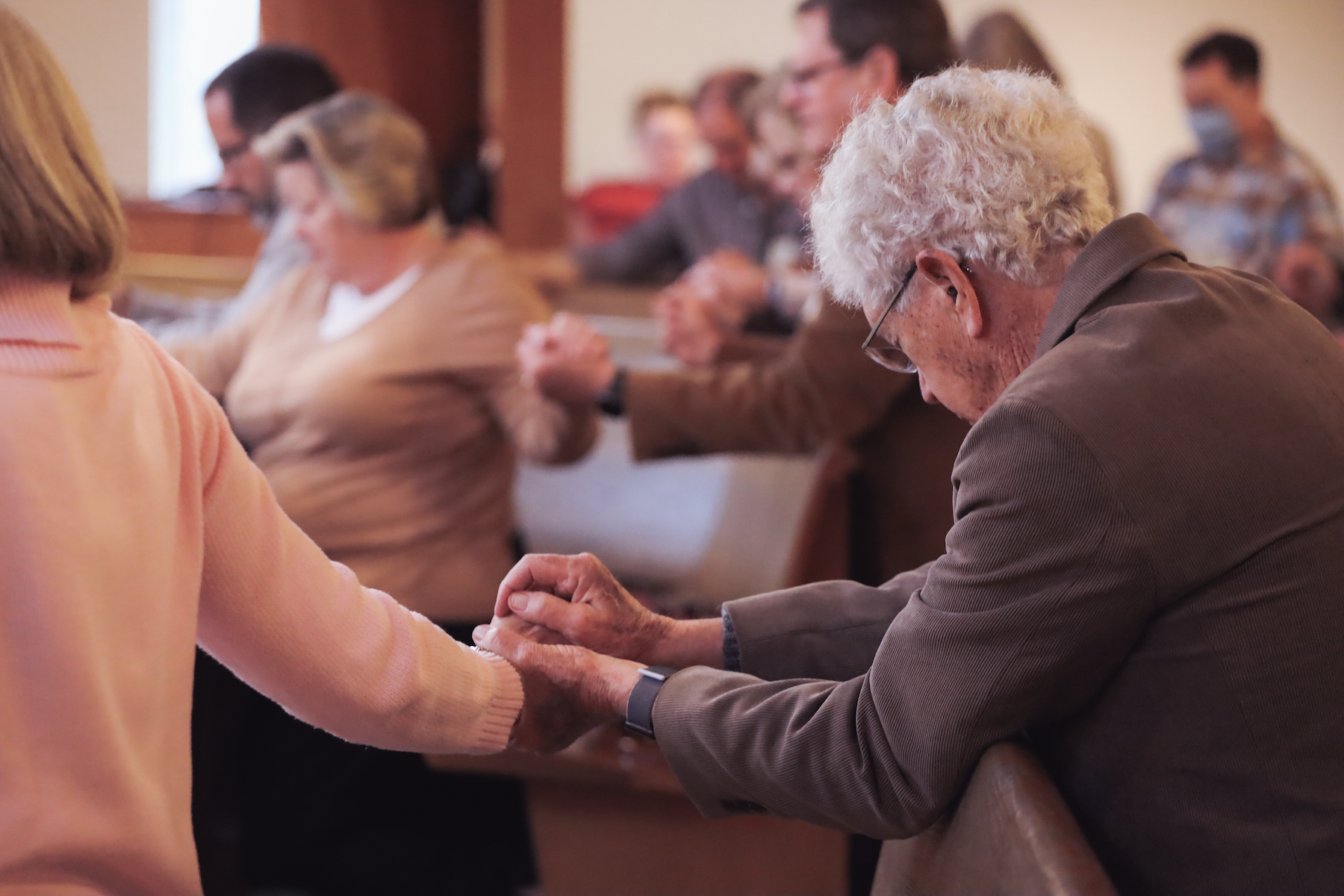
The investment pays off with holistic tools, as each parish team answers deep questions such as “Why do we behave like we do?” and “How do we effectively communicate who we are to our neighbors?” Each parish team learns to plan to change, and not just respond to change.
“CCD is going to change the way we do things,” said Thompson-Quartey. “If you’re a company, you put your energy into that one product which makes you special and then you can market it. That’s what CCD does. Once you get clarity on your mission, you put your energy and resources behind it and begin to see some growth.”
NEXT STEPS
Parishes considering CCD should contact The Office of Congregational Vitality to confirm they are ready to make the commitment to vitality through CCD. The Office of Congregational Vitality will work with the parish leadership to identify the best candidates for its team.
Listen In
In this episode of For People, Melissa and Sally have a conversation about God’s word, what God’s word teaches us about the power of our own words, and how we use our words to bring the kingdom a bit closer to earth. Listen in for the full conversation.